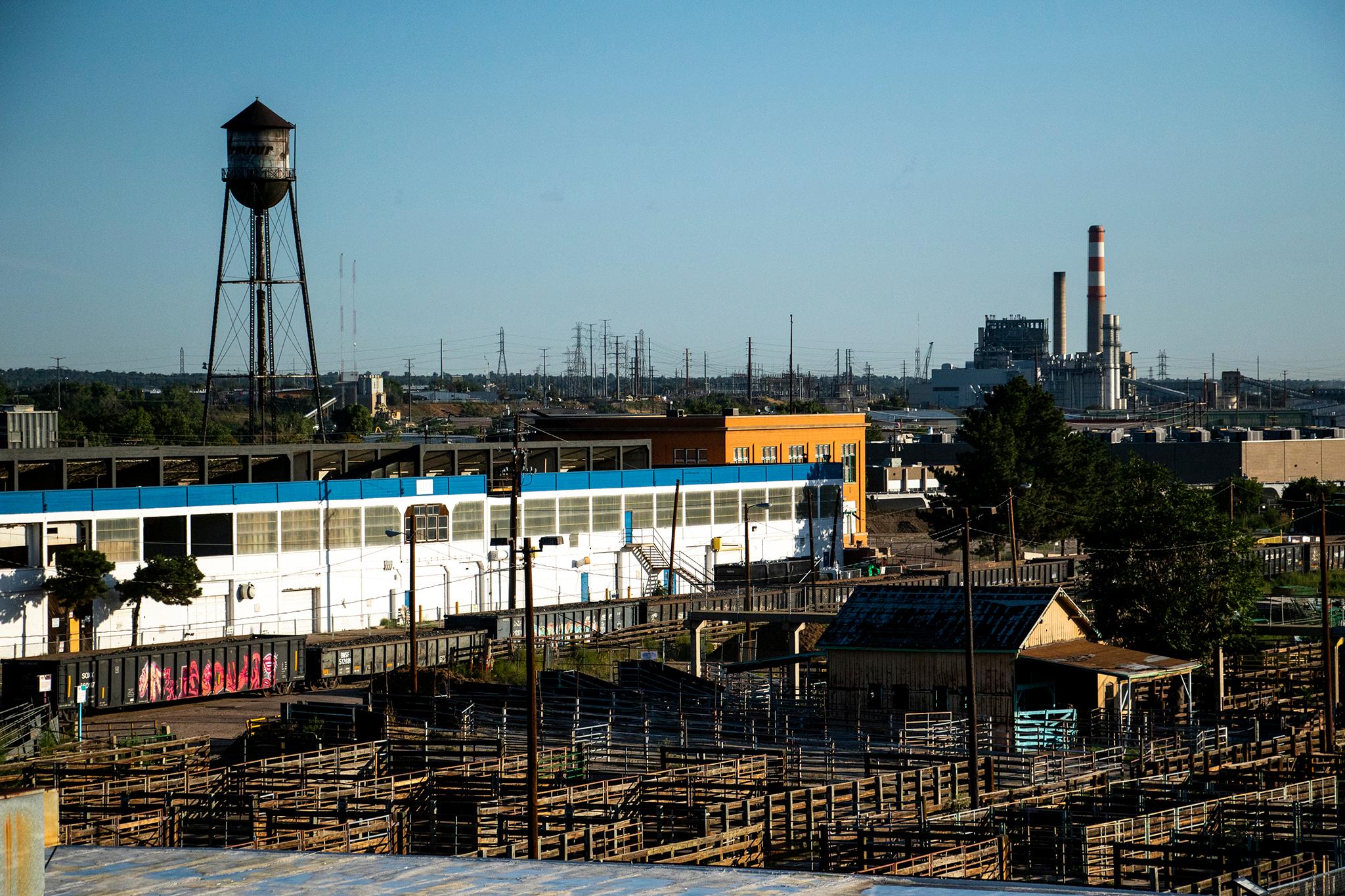
The next phase of Denver’s massive overhaul of its National Western Complex on the city’s north side will be done through a public-private partnership, city officials announced Tuesday.
That financing model, known as P3 for short, has become more popular with Colorado governments in recent years, as officials say it’s made possible major capital projects like RTD’s A Line and Denver International Airport’s ongoing revamp of its Great Hall.
In early December, Denver’s office of Performance-Based Infrastructure issued a draft request for proposals for the second, and final, major piece of the $1 billion National Western renovation. The first phase focused on environmental cleanup, new infrastructure like roads and bridges and other work to prepare the land for new buildings.
The second includes three major projects: restoration of the 1909-era stadium just north of Interstate 70, a new 10,000-seat arena for rodeos and concerts and a new expo hall. The city estimates the value of those buildings to be around $528 million, but because of the long-term nature of public-private partnerships, the dollar figure in the final contract could be well above that.
Typically, governments issue debt to pay for capital projects. But under the P3 model, private companies pay upfront construction costs and for ongoing maintenance and operations. Governments, in turn, pay the company a monthly fee. Such deals generally last for decades and allow for projects to be built years before they could be otherwise.
That’s the case here as well, said Denver’s Chief Projects Officer Josh Laipply.
“We just don't have the upfront cash,” he said.
The new buildings will use about 18 acres of a 60-acre area known as the “triangle” near I-70 and Brighton Boulevard. The private company will be allowed to develop the remaining 42 acres for either commercial or residential use, an income opportunity the city hopes will offset construction costs for the larger public facilities.
Involving the private sector in this way adds another layer of complication to what are already complex projects. And they have a mixed record in Colorado in recent years.
Both the A Line and the DIA projects have seen their fair share of delays and other major issues. The airport will pay around $200 million to divorce from its contractor after construction issues were revealed, and RTD and its contractor are locked in a lawsuit that could cost the transit agency $80 million.
The National Western deal will be different from both of those, Laipply said.
Two consortiums, Triangle Partners and Triangle Collective, are in the running for the contract, whereas the DIA project had just one qualified bidder. Laipply said competition could lead to better bids.
RTD’s project was the first public-private partnership in a commuter rail project in the country, done at a time that federal regulations were changing. RTD’s contractor also cut corners, like using single-track along some stretches, that led to some operational challenges.
“I would say this one is not quite as unique,” Laipply said.
The city also engaged law firms that specialize in public-private partnerships to shape its contract.
“If you don't have a good contract, people start owning risks that they didn't think they owned,” Laipply said. “A lot of that happens in construction. And so that's why it's important to have somebody that knows how to really spell things out.”
The city will host a number of public meetings to gather feedback in the coming months. The draft RFP will be revised a number of times before being finalized in summer 2020. At that point, staff will give City Council a recommendation as to which company should get the contract. Groundbreaking would happen after that.
But the ongoing turmoil over the DIA contract has left at least one city council member skeptical.
“I think we're very cautious about whether or not this is the right approach,” Councilwoman Debbie Ortega said. “We want to see as many details as possible. We want to be briefed early and often because we don't want something to come to us as a surprise later on and be expected to rubber-stamp it."
One firm, Saunders Construction, was part of the Great Hall Partners consortium the city fired from the DIA project and is also part of Triangle Partners — one of the finalists for the National Western project.
“We are a local team rooted in this community, and are passionate towards activating and integrating the site with other elements of the NCW campus and the greater Denver metro area,” the consortium wrote in its public statement.
Laipply said the Great Hall project connection doesn’t especially concern him.
“Anytime we go into construction we should be worried,” he said. “Because anytime you're digging in the dirt, you cannot know everything. But again, that's why we're going to take a lot of time and input through this process.”
Denverite reporter David A. Sachs contributed to this report.









